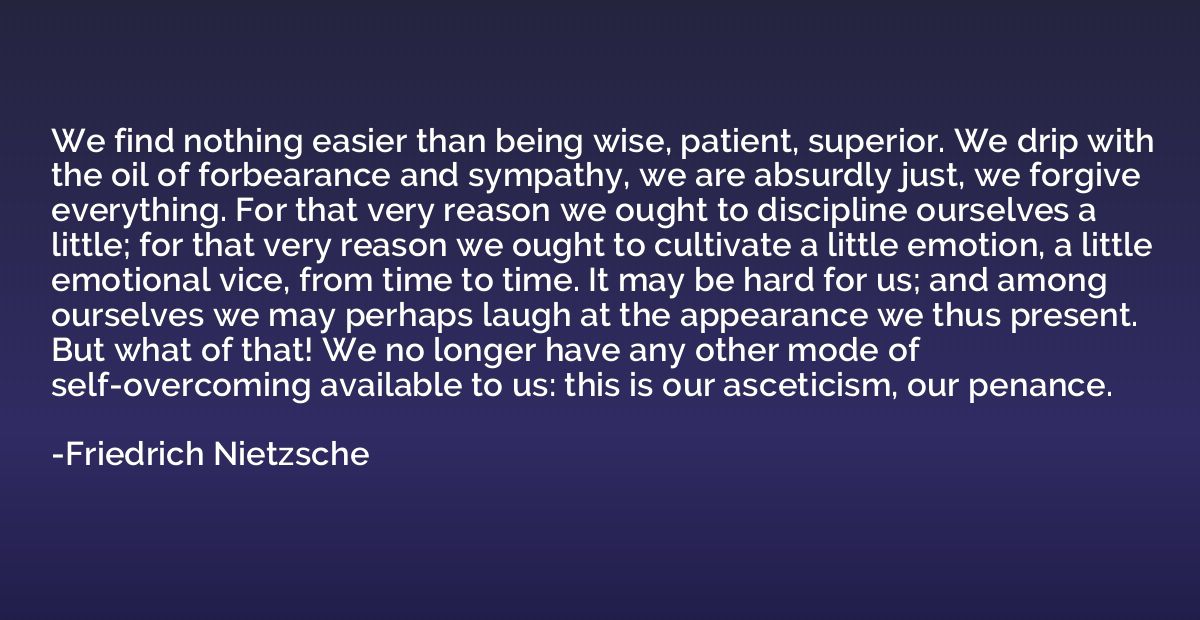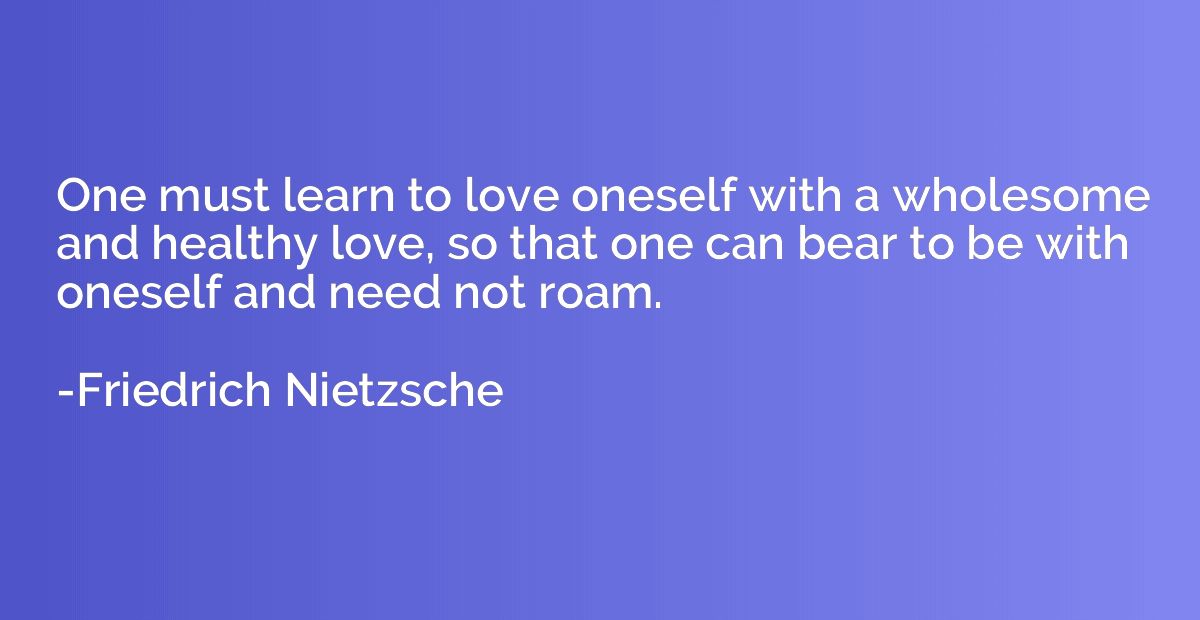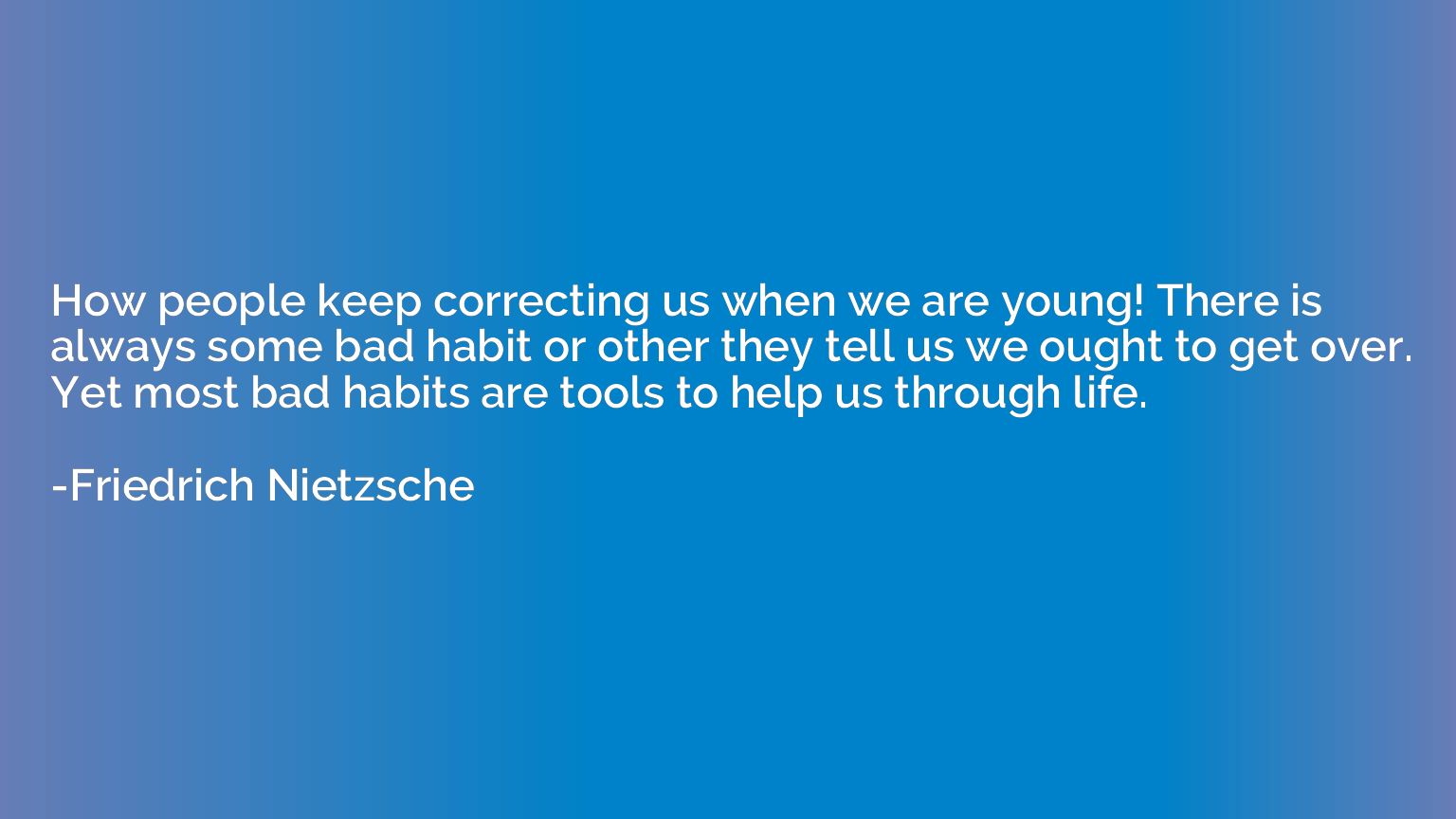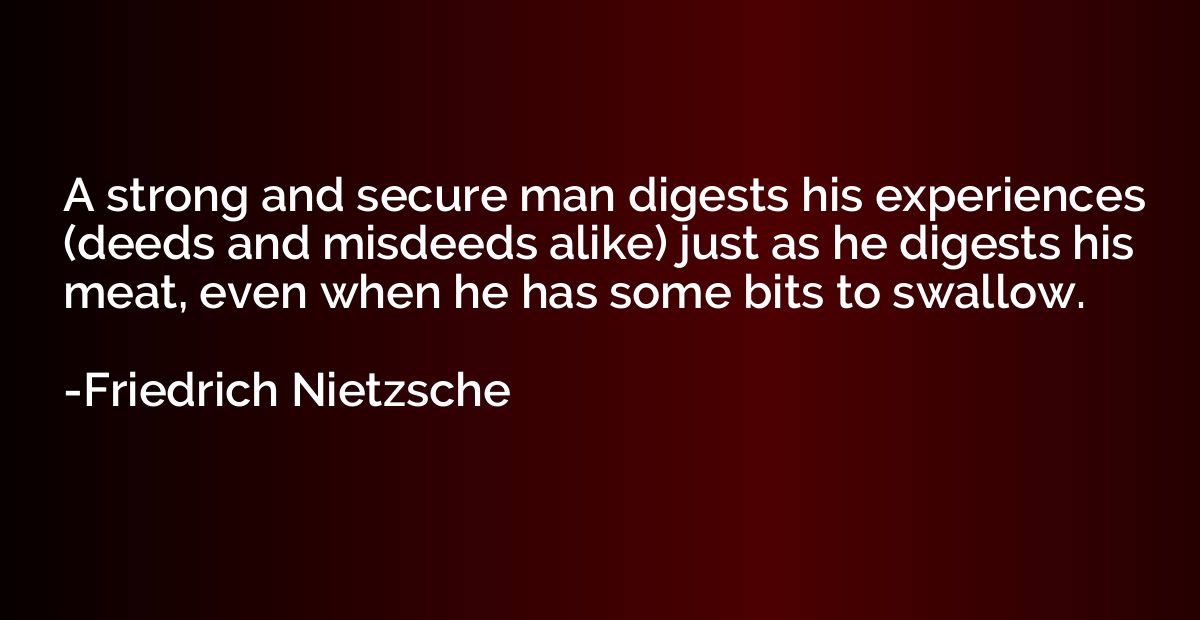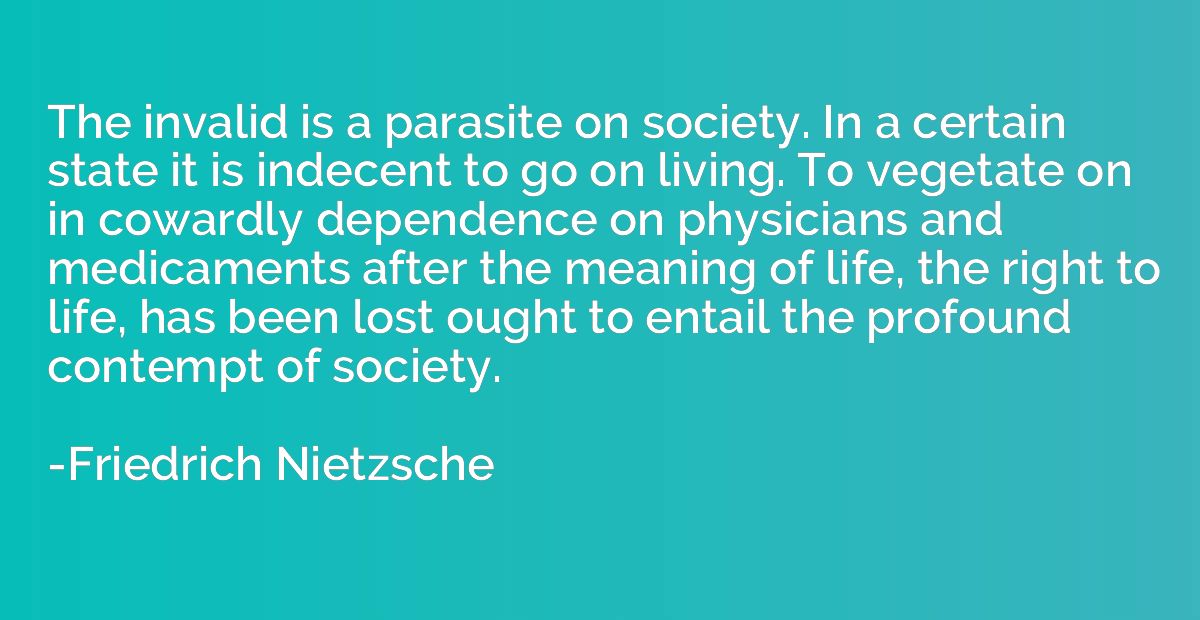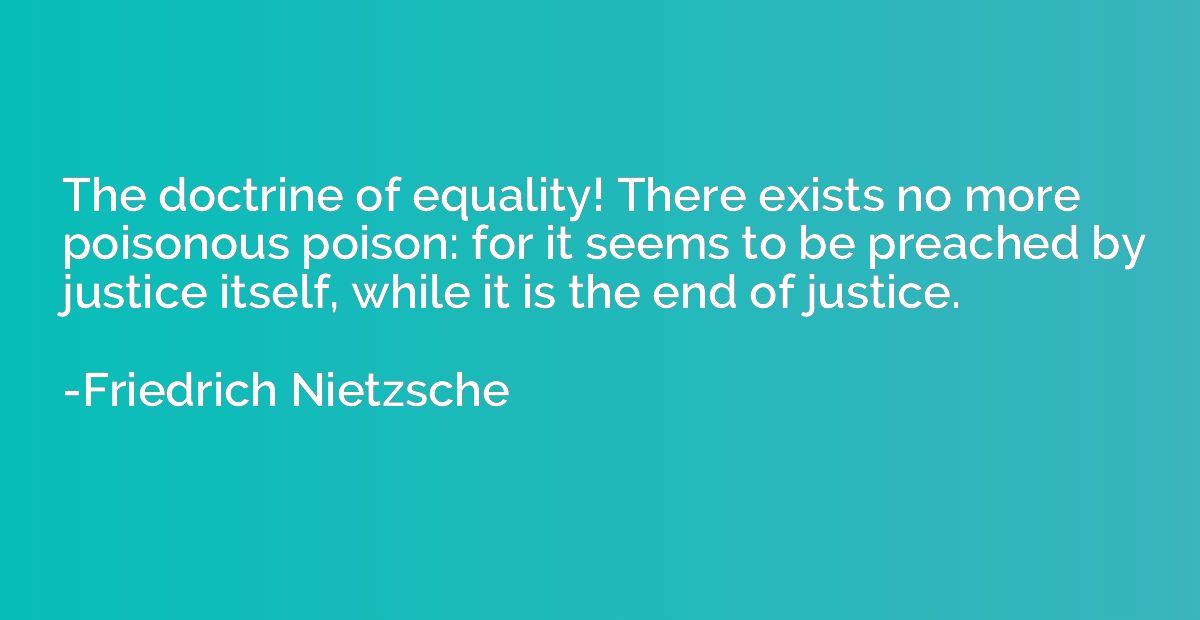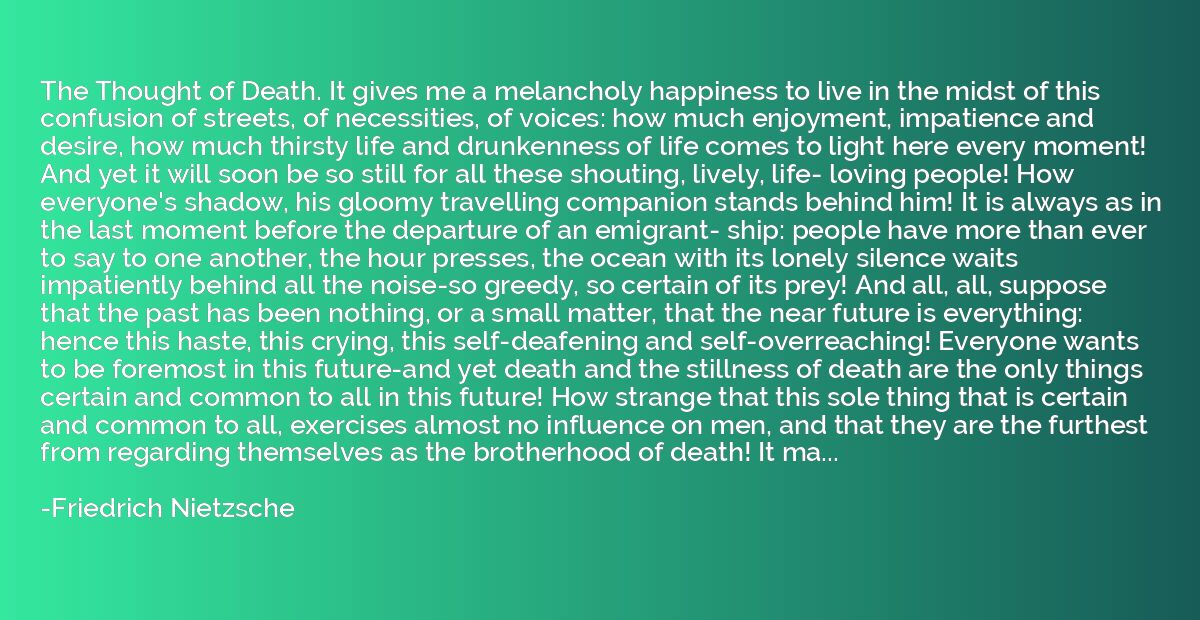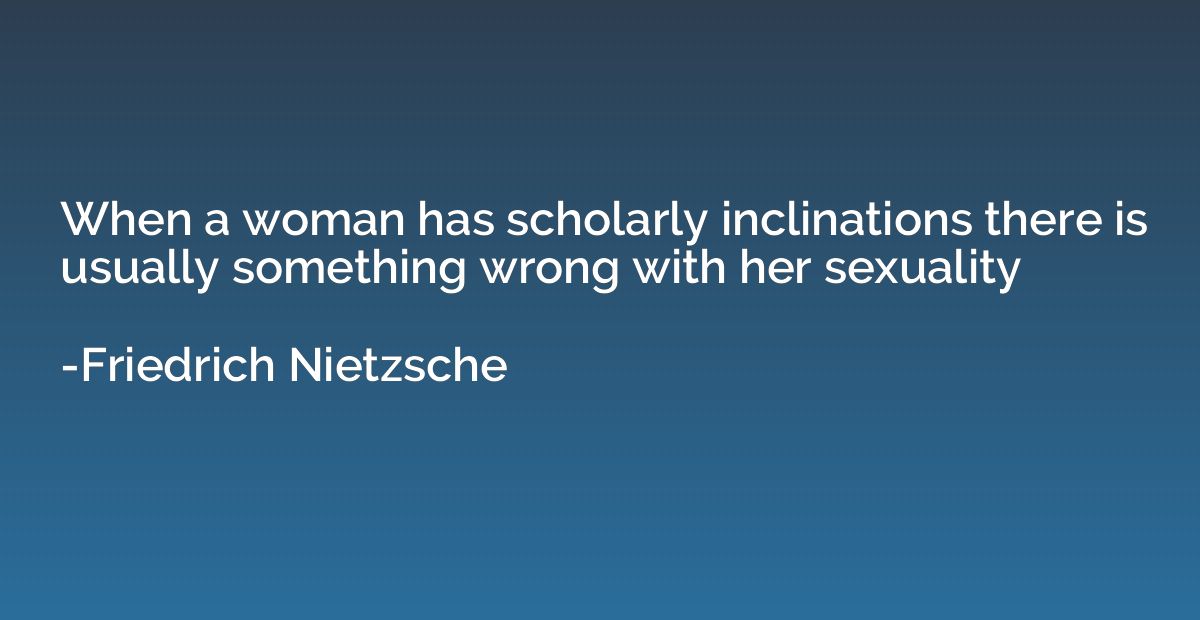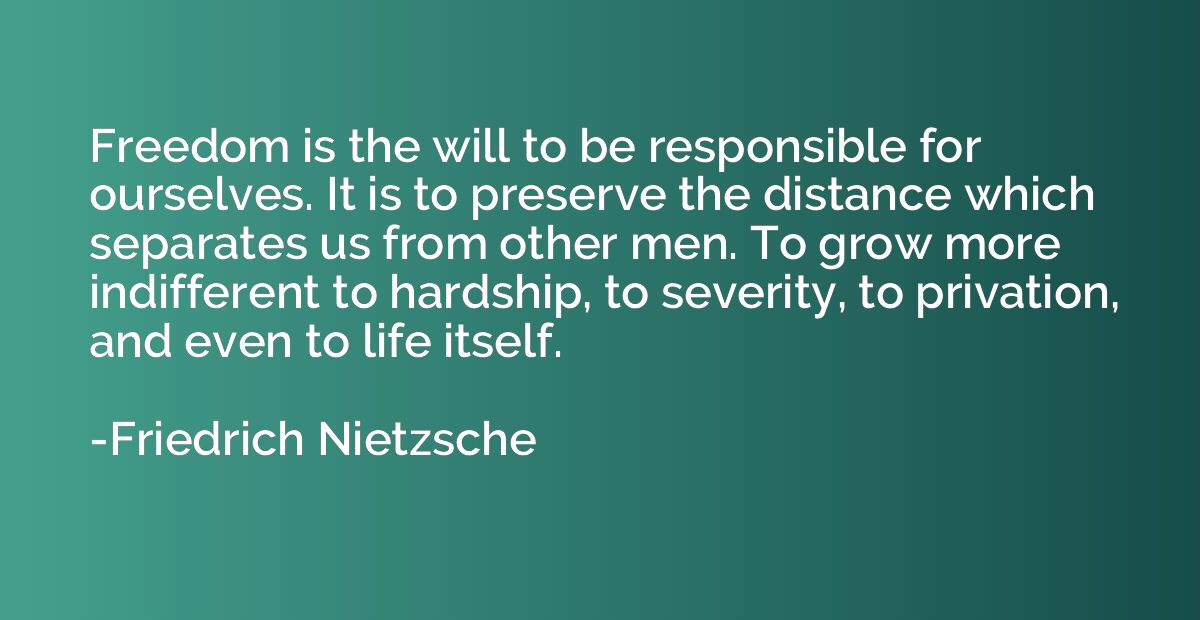Friedrich Nietzsche Quotes
A collection of quotes by Friedrich Nietzsche.
Friedrich Nietzsche (1844-1900) was a German philosopher, poet, and cultural critic. Born in the town of Röcken, Prussia, Nietzsche developed a keen interest in literature, music, and classical studies from an early age. He went on to study philology, focusing on ancient Greek and Roman texts, at the University of Bonn and later at the University of Leipzig.
Throughout his intellectual career, Nietzsche challenged traditional moral and religious values, advocating for a reevaluation of prevailing beliefs. His most famous works include "Thus Spoke Zarathustra," "Beyond Good and Evil," and "On the Genealogy of Morality." Nietzsche's philosophy emphasized the concept of the "Übermensch" or "Superman" – an individual who transcends societal norms, embraces personal will, and lives according to their own values.
However, Nietzsche's ideas were often misinterpreted, leading to accusations of nihilism and moral relativism. In his later years, Nietzsche suffered from deteriorating mental and physical health, ultimately succumbing to mental illness and living the last years of his life in seclusion. Despite his troubled final years, Nietzsche's writings have had a lasting influence on various fields, including philosophy, literature, psychology, and art.
Nietzsche's work continues to be widely studied and debated, with scholars exploring themes such as the nature of truth, the role of religion, the impact of power structures, and the subjective nature of morality. His ideas have had a profound impact on existentialism, postmodernism, and the development of Western thought in the 20th century.
